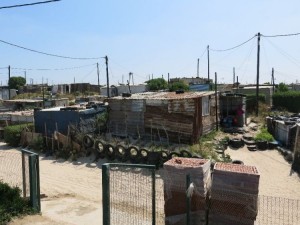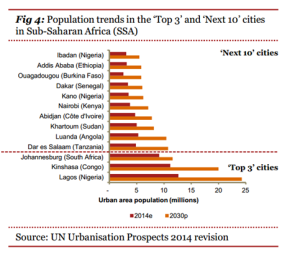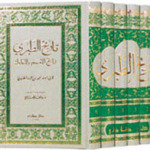Mercy Brown-Luthango (ACC) ~ Enhancing Safety Through Upgrading – Experiences From Cape Town

Violence and crime are spatially distributed with violent crime often concentrated in poorer, underdeveloped urban areas – such as this informal settlements in Khayelitsha, Cape Town
Improving safety is a key outcome of the South African policy on upgrading informal settlements. Yet little is known about the impact urban upgrading has on improving safety and reducing violence in these settlements.
In this article, Mercy Brown-Luthango from the African Centre for Cities at the University of Cape Town shares preliminary findings from a research project that looks at the effectiveness of different urban upgrading approaches with regards to safety.
Safety is an issue which occupies the minds of most South Africans on a daily basis. South Africa is one of the most violent countries in the world with a death rate of 157.8 per 100 000 population which is considerably higher than the average rate of 139.5 per 100 000 population for the African continent and nearly double the global average of 86.9 per 100 000 population
Violence and crime are spatially distributed with violent crime often concentrated in poorer, underdeveloped parts of the city. The relationship between violence and the nature and quality of the physical environment is well acknowledged.
Read more: http://www.saferspaces.org.za/experiences-from-cape-town
Barbara Speed ~10 African Cities Whose Economic Importance Will Triple By 2030
 January 2015. Global Economy Watch, a monthly report released by PwC, usually leads with stories on US employment figures or an analysis of the Eurozone crisis. In August, though, it turned its attention to a more neglected part of the world, running an article titled, “Africa: Growth is on the horizon but where should you look?”
January 2015. Global Economy Watch, a monthly report released by PwC, usually leads with stories on US employment figures or an analysis of the Eurozone crisis. In August, though, it turned its attention to a more neglected part of the world, running an article titled, “Africa: Growth is on the horizon but where should you look?”
The audience for such reports are the senior executives (CEOs, CFOs and COOs) referred to as occupants of “the C-suite”. Most of these guys haven’t spent a great deal of time thinking about sub-Saharan Africa’s potential as an investment target. But, it turns out, they should.
Read more: http://www.citymetric.com/10-african-cities
The Cities Papers ~ An Essay Collection From The Decent City Initiative
 January 2015. How can the core characteristics of big cities be mobilized to make human life more just and democratic? Premised on the centrality of urban space to human experience and the great challenges and opportunities produced by urban concentration across the globe, the Social Science Research Council’s initiative on The Decent City seeks to deepen understanding and improve practice by creating interactions among social scientists, humanists, architects, designers, and urban planners. The Cities Papers are thought pieces produced by scholars and practitioners from all these perspectives who participated in several gatherings to further shape the initiative’s agenda.
January 2015. How can the core characteristics of big cities be mobilized to make human life more just and democratic? Premised on the centrality of urban space to human experience and the great challenges and opportunities produced by urban concentration across the globe, the Social Science Research Council’s initiative on The Decent City seeks to deepen understanding and improve practice by creating interactions among social scientists, humanists, architects, designers, and urban planners. The Cities Papers are thought pieces produced by scholars and practitioners from all these perspectives who participated in several gatherings to further shape the initiative’s agenda.
Read more: http://citiespapers.ssrc.org/
The International Institute For Development And Ethics
 The International Institute For Development And Ethics (IIDE) is an innovative institute that stimulates collaboration between the North and the South in study and action in ethical development, locally and globally. Since 2004 the IIDE has been represented in Africa and Europe by two mutually dependent entities. They operate as an intermediary between universities and the broader society by creating linkages and alliances between different universities and between universities and external parties. It aims to add value for all parties in relation to content and finance, realised through:
The International Institute For Development And Ethics (IIDE) is an innovative institute that stimulates collaboration between the North and the South in study and action in ethical development, locally and globally. Since 2004 the IIDE has been represented in Africa and Europe by two mutually dependent entities. They operate as an intermediary between universities and the broader society by creating linkages and alliances between different universities and between universities and external parties. It aims to add value for all parties in relation to content and finance, realised through:
* initiating and supporting social entrepreneurial approaches in development;
* research; and
* teaching and training.
It is the mission of the IIDE to serve society by bridging the proverbial gap between theory and practice, between university and society. Being aware that effective development is unthinkable without both practical and scientific expertise, the IIDE brings together practitioners and academics in order to utilise good practices from both environments.
Although the IIDE is a fully independent organisation without ties to any religious denomination, it takes Christian principles and values as its primary source of guidance and reference. As such, its views on Christian social responsibility lead the way to its vision, its mission and the concrete services and products it wishes to render for the benefit of society.
Contact information is available at www.iide-online.org
Now online:
Proceedings of the 19th Annual Working Conference of the IIDE – 6 – 9 May 2014 – Mark Rathbone, Fabian von Schéele & Sytse Strijbos (Editors)
Work in Progress:
Proceedings of the 17th Annual Working Conference of the IIDE Vol. I – May 2011 – Lucius Botes, Roel Jongeneel & Sytse Strijbos (Editors)
Proceedings of the 17th Annual Working Conference of the IIDE Vol. II – May 2011 – Christine G. van Burken & Darek M. Haftor (Editors)
Read more
Fatima Hassan ~ The Link Between Functioning Toilets And Justice
In Khayelitsha, an informal settlement on the outskirts of Cape Town, residents play near toilets that are crumbling, clogged, and dirty. This lack of access to proper sanitation is not just a health hazard—it’s a crucial issue for development, safety, access to justice, and human rights.
The South African constitution guarantees the right to equality and dignity, and also an extensive list of socioeconomic rights, the realization of which is frustrated by a lack of access to basic sanitation facilities. Millions of South Africans still lack access to basic sanitation, including at least 500,000 in Cape Town.
Read more: http://www.opensocietyfoundations.org/
On Islamic Historiography
 By Islamic Historiography I mean written material concerning the events of the early period of Islam written by Muslim historians. This material is essential for any major research on Islam but has been continuously discredited by predominantly Western scholars. Therefore, before the study of these texts, an outline of their characteristics and a short discussion about the criticisms of these texts and their authors is indispensable.
By Islamic Historiography I mean written material concerning the events of the early period of Islam written by Muslim historians. This material is essential for any major research on Islam but has been continuously discredited by predominantly Western scholars. Therefore, before the study of these texts, an outline of their characteristics and a short discussion about the criticisms of these texts and their authors is indispensable.
Among the problems proclaimed in the criticisms are: the gap between the historical events and their recording, the fact that early historical compilations have not survived and have been paraphrased or summarized in later digests, the problem of the oral origin of many reports, the task of the historian, the incompatibility of non-Islamic sources, forged reports, political influences on historiography, the purpose of historiography and the originality of the historian.
In this paper the criticisms concerning the Islamic historiography and the answers of the some historians to these criticisms will be surveyed.
The origin, the terminology and the form of the early Islamic historiography
According to Robinson, Arabs produced very little written material before Islam and relied instead on orality.[1]
It seems logical to conclude that the enormous volume of written work which was produced after Islam[2] must be ascribed primarily to the emphasis in various Qur´ānic verses on writing and the stories in this book about the previous peoples and prophets, which encouraged the Muslims to narrate, and reflect and investigate about the origins of those narrations, examples are, the next two verses:
…By the pen and what they write with it…. (Qur’ān 68:1)
Relate these allegorical stories (to the people) perhaps they might think. (Qur’ān 7:176).3
The second important impetus seems to have been the traditions of the Prophet of Islam which were to be preserved for the future generations. Islamic Tradition informs us that the Prophet of Islam discouraged his followers, in the initial stages of his mission, to write about him in order to prevent any confusion between his sayings and the Qur´ān.[4]
However the reports about the alteration of this attitude in a later stadium encouraged the biographers to write Sīra or biographical collections at the end of the first and beginning of the second Islamic century. The campaigns of the Prophet (Maġāzī) and the conquests (Futūḫ) [5] were the other historical works, produced in the period between the first works and the later great compilations.
The collections with the modern name for history, Ta’riḥ, appeared in the 2nd/9th century.[6]
Their source material consisted of Aḥbār which according to Rosenthal means both information and the events and corresponds to history in the sense of story, anecdote (ḫekāyat). Later, when the term was used together with āthār, it became synonymous to hadīth.[7]
The other sources were the above mentioned Sīra, Maġāzī and Futūḫ works, the books of aḥbāriyyūn and genealogical works and oral accounts.[8]
Thus, the first historical works, as the ordered record of the events of the past, began as a mixture of the above mentioned genres. This is the same multi-faceted character that Robinson says history used to have:
“…coming via Latin from the Greek historia, generally meant ´inquiry´; it earlier described a variety of genres, including geography, folklore and ethnography, in addition to what we would commonly understand to be history.”[9]
And the way Rosenthal defines history:
History in the narrow sense.., should be defined as the literary description of any sustained human activity either of groups or individuals which is reflected in, or has influence upon the development of a given group or individual….for the modern mind, the general concept of history may, in theory, be extended to include all animate or inanimate matters. [10]
While he also mentions that:
Muslim historiography includes those works which Muslims, at a given moment of their literary history, considered historical works and which, at the same time, contain a reasonable amount of material which can be classified ashistorical according to our definition of history, as given above. [11]
Thus, history is made up of many elements which together have certain meaning for certain people. This is by no means the denial of general definitions of or theories about history, rather, the emphasis is on the meaning of a certain concept, object or idea in a specific context.
Not only the combination of aḥbār and āthār became synonymous to ḫadīth, but also the form of historical narratives took the form of ḫadīth. According to Dūrī two perspectives existed among the early compilers: the ḫadīth perspective and the tribal perspective. Very soon, the first perspective prevailed which explains why the Islamic historiography has maintained the form of ḫadīth, thus, beginning with an isnād or chain of transmitters, continued by the report (ḥabar).[12]
The problems concerning the Islamic historiography
Islamic history books and Muslim historians have been the subject of both praise and critique. There are problems concerning the historical texts and those concerning the narrators both historians and their transmitters.
One problem ascribed to Islamic historiography is the fact that there is a gap between the time of the events of the early period of Islam and their historiography. Is this gap so long that it can in fact disqualify the whole historiography? It seems that this gap was not considered to be very important when the Western scholars first came into contact with the Islamic sources of the second and third century of Islamic era.[13] Perhaps this was caused by their earlier experiences with other historiographies. The later recording of the events in Islam had its precedents in other historiographies. For example, according to Robinson: The gap between event and record in early Islam is relatively narrow compared with our source material for the ancient Israelites, which usually dates from several centuries after the facts they purport to relate.[14]
Thus the problem of late compilation does not seem to be restricted to Islamic historiography. Read more


